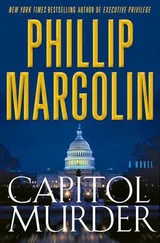“But what position is the senator going to take?” “Will he consider resignation?” “What’s the reaction from his wife?” All Shandy could do was repeat over and over again, “I’m sorry, but we have no comment on that at this time.” A machine could have performed the job. And a machine wouldn’t have minded the hostility she met in almost every instance.
After that, Amanda had her reviewing and revising the press releases she’d drafted, a pointless exercise since Amanda was obviously the type of person who couldn’t take criticism from anyone. Then she had to make copies on that pathetic copying machine. Then she had to conference with a delegation from each party. Ironically, Senator Glancy’s party turned out to be far more hostile. She could tell the Republicans were enjoying this, savoring the opportunity to bring down someone who had been mentioned as a possible national ticket player. The Democrats, on the other hand, felt disgusted and betrayed. Why would Amanda send her on these no-win missions? Two explanations leapt to mind. First: she figured Shandy couldn’t tell them anything because she didn’t know anything, and second: Amanda didn’t want to face them herself. If Amanda had any hint of what Shandy had seen after the committee meeting, she’d have kept her under lock and key, but Shandy didn’t know what to think about all that yet, so she kept her mouth shut.
Shandy knew that as soon as Amanda spotted her again she would give her another unpleasant assignment-something as bad as or worse than what she’d been doing all morning-so she told Hazel she was stepping out to get some fresh air, just so she could have a minute or two to collect her thoughts and slow the onset of insanity. She didn’t think anyone (other than Amanda, if she found out) would mind. After all, they had told her where the senator’s hideaway was during the interview, and she had been there before. She knew it was quite nice-it had a sofa with a foldout bed, a television, a fridge stocked with soft drinks, even a faux fireplace. So she quietly wound her way down the stairs and into the basement, through the circuitous maze of passageways that led to the private hideaway.
Unlike the wide-open passages aboveground, down below the corridors were narrow and claustrophobic, made all the worse by the discarded furniture and equipment that lined the way, some of it junk so old she didn’t even know what it was originally designed to do. Stacks of yellowed paper, dented file cabinets, exposed wiring and rusted pipes: this was The Land That Time Forgot. She winced at the incessant clatter made by the electrical units, plumbing, and bizarre ancient subterranean air-conditioning tunnels. Finally she arrived at the hideaway, desperate to rest her feet, close her eyes, and just relax for one precious moment. She opened the door and stepped inside.
Her scream was so loud it could be heard all the way down the winding corridors and even upstairs, despite the rattling of the pipes, the humming of the exposed electrical wiring, and the sucking of the ancient air-conditioning tunnels. She screamed and screamed and when she finally stopped, it was not because she was no longer terrified, but because she was unconscious.
The first time Ben and Christina visited Senator Glancy’s office, the scene had been chaotic. When they returned after lunch, it was empty. They were baffled-until the police officer posted inside escorted them downstairs.
“Where is this they’re taking us?” Ben asked.
“My hideaway,” Glancy explained, his lips pursed. “In the basement. The best of all possible Senate perks-and one of our most closely guarded secrets. A private haven far from the madding crowd, but close enough to the action that you can still make it upstairs in time for a roll call vote. Just a little place you can use to avoid lobbyists or tourists or anyone else. No one is supposed to know about them-they don’t show up on the maps. Not even the Senate floor plan. But all the top senators have one. Dianne Feinstein used hers as a temporary office during the anthrax scare of ’01 and the ricin scare of ’04. Hell, in his prime, Tom Daschle had six of them.”
When they finally arrived, the narrow hallway was congested by so many people it was difficult to pass through. The door to the hideaway had already been restricted with yellow crime scene tape. Hazel was there but not much help; her hands covered her face, which was streaked with tears. Most of the other staffers were equally distraught. Only Amanda appeared to have kept her head. She was facing down a mildly overweight man in a tan suit and white shirt, arguing with him about some topic they couldn’t discern.
“What the hell happened?” Glancy muttered, soaking it all in. “Did the White House send cops out to look for a semen-stained dress?”
“There must be more to it than that,” Ben said quietly. “A lot more.”
“Why?”
“That man Amanda is talking to? He’s a police detective.”
“How can you tell?”
“Because I’ve spent a lot of time around detectives-and they didn’t put this crime scene tape up for decoration. Something happened, and judging by the flurry of coveralled crime tech personnel in there, it happened in your hideaway.”
“How could anything happen here? I’ve been in the cafeteria for hours.”
“I don’t know. Let’s see if we can find out. Christina, try to get to one of the uniforms. I’ll work on the detective.”
They split up. Ben moved beside Amanda and the detective and waited for a pause in the conversation, which given the speed at which Amanda bellowed, was a fairly long wait.
“Who else had access to this location?” the detective asked.
“Only members of the staff. No one else would even know it existed.”
“And I’ve met all the staffers here. Is there another office?”
“We have a secondary office a few blocks from here. At the Democratic headquarters.”
“Why so far away?”
“They’re full-time fund-raisers. They make cold calls, stay in touch with major donors, that sort of thing.”
“You keep a separate office just for that?”
“No choice. Federal law prohibits fund-raising calls from a government office or on a government phone. Just ask Al Gore.”
“Excuse me,” Ben said, cutting in. “May I ask what happened here?”
The man looked at Amanda, not at Ben. “Who the hell is he? Is he on my list?”
“He’s…” She waved her hand in the air. “Actually, I don’t remember his name. He’s the senator’s lawyer.”
“My name is Ben Kincaid. Why are the police here? What’s happened?”
The detective scowled. “Like Glancy doesn’t already know?”
“No, he doesn’t.”
“Then what a coincidence that he just happens to show up with a lawyer in tow.” He snorted.
Ben did his best to control his temper. “Would someone please tell me what happened?”
The man reached past his bulging belly into his jacket and removed a black wallet, then flashed his badge. “I’m Lieutenant Albertson, DCPD. Homicide.”
Ben felt his pulse quicken.
“We found the senator’s missing girlfriend doing a headstand in the senator’s hideaway. On the sofa, with her face wedged between the cushions. And her legs sprawled backward over the edge. And a nine-inch gash in her neck. Huge blood loss. Does that answer your question?”
“Is she dead?”
“You betcha. That’s why we call it a homicide.”
“May I see the crime scene?”
“No.”
“May I speak to whoever found the body?”
“No.”
“I’d like to receive copies of all your preliminary reports.”
“Hell, no.”
“Why not?”
“Why should I?”
Читать дальше








